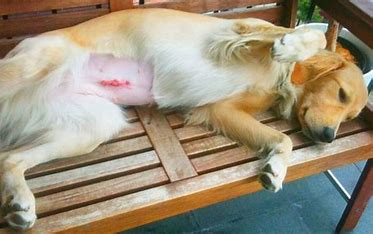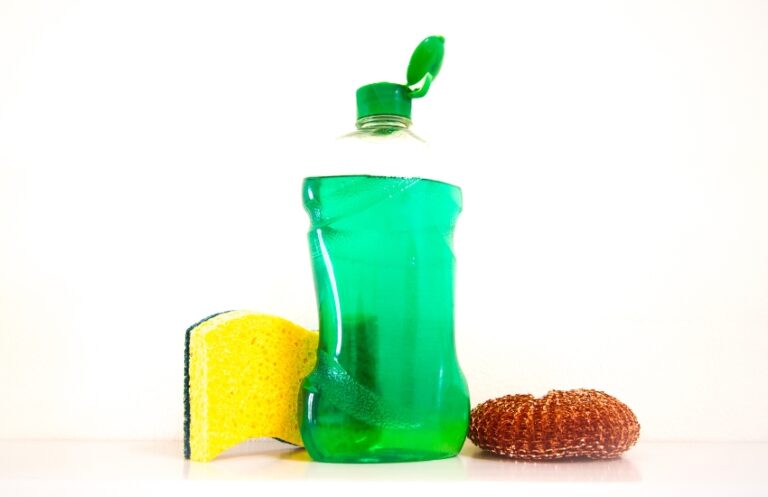Can Dogs Eat Popcorn? The Ultimate Guide to Doggy Snacks

Can dogs eat popcorn? This is a common question among dog owners who enjoy snacking on popcorn and want to share the experience with their furry friends. The answer is a bit more complicated than a simple yes or no, so let’s explore the topic further and find out if popcorn is a safe and healthy treat for dogs.
Popcorn itself is not toxic to dogs, but there are a few factors to consider before feeding it to your canine companion. Firstly, plain, air-popped popcorn without any added salt, butter, or toppings is the safest option. While plain popcorn can be a low-calorie and fiber-rich snack for dogs, the additives commonly found in flavored popcorn can be harmful to their health.
In this article, we’ll delve into the potential risks and benefits of feeding popcorn to dogs, discuss portion sizes, and provide some tips for safely incorporating popcorn into your dog’s diet. So, if you’ve ever wondered whether your dog can join you for movie night with a bowl of popcorn, keep reading to find out the answer.
Is It Safe for Dogs to Eat Popcorn?
Many dog owners may wonder if it is safe to share their favorite snack, popcorn, with their furry friends. While popcorn itself is not toxic to dogs, there are some considerations to keep in mind before giving it to them.
Potential Benefits of Dogs Eating Popcorn
- Source of Fiber: Popcorn is relatively high in fiber, which can help regulate a dog’s digestion and promote a healthy bowel movement.
- Low in Calories: Plain, air-popped popcorn is a low-calorie snack option for dogs, which can be beneficial for weight management or as a guilt-free treat.
- Entertainment and Mental Stimulation: Many dogs enjoy the crunchiness and texture of popcorn, which can provide them with entertainment and mental stimulation.
- Bonding Opportunity: Sharing popcorn with your dog can be a bonding experience, as it allows for a shared snack time and reinforces positive interactions.
While these benefits make popcorn seem like a potentially healthy and enjoyable snack for dogs, it is important to be aware of the risks associated with dogs consuming popcorn as well. Ensure that you are aware of the potential risks and follow proper safety guidelines before offering popcorn to your furry friend as a treat.
Potential Risks of Dogs Eating Popcorn
- Choking Hazard: Popcorn can pose a choking risk for dogs, especially if they eat the unpopped kernels or pieces that are too large.
- Salt and Seasoning: Most popcorn is seasoned with salt or other flavorings, which can be harmful to dogs in large amounts and may lead to sodium ion poisoning.
- Butter and Oils: Butter or oil used in popcorn preparation can cause digestive upset and potentially lead to pancreatitis in dogs.
- Additives and Toppings: Additional ingredients like sugar, caramel, chocolate, or other toppings commonly found on popcorn can be toxic to dogs. Dogs should never consume sweetened or flavored popcorn.
- Unpopped Kernels: Dogs may accidentally eat unpopped kernels, which can cause dental damage, tooth fracture, or gastrointestinal obstructions.
- Allergic Reactions: Some dogs may be allergic to corn or certain additives used in popcorn, leading to allergic reactions such as itching, skin problems, or gastrointestinal issues.
- Weight Gain and Obesity: Popcorn is a high-carbohydrate snack that can contribute to weight gain in dogs if consumed in large quantities or as a regular part of their diet.
It’s important to recognize these potential risks and take steps to ensure the safety and well-being of your canine companion. In the next section, we will explore whether popcorn can be a healthy snack option for dogs and provide alternative snack options to consider.
Can Popcorn be a Healthy Snack for Dogs?
When it comes to sharing snacks with our furry friends, it’s essential to consider their safety and well-being. Popcorn can be a tempting treat, but is it suitable for dogs? Let’s dive into whether popcorn can be a healthy snack option for our canine companions.
How to Safely Prepare Popcorn for Dogs
- Air-pop the popcorn: Avoid adding butter, salt, or any other seasonings to the popcorn. Plain, air-popped popcorn is the safest option for dogs to consume.
- Remove unpopped kernels: After the popcorn has finished popping, sift through it to remove any unpopped kernels. These can pose a choking hazard or damage your dog’s teeth.
- Cut the popcorn into smaller pieces: While popcorn is generally a safe snack for dogs, it is best to cut it into smaller, bite-sized pieces before offering it to your furry friend. This can help prevent choking or digestive issues.
- Offer popcorn as an occasional treat: While dogs can enjoy popcorn, it should be given in moderation. Popcorn should not replace their regular balanced diet. Too much popcorn can lead to weight gain or other health issues.
- Monitor your dog while they eat: Always keep an eye on your dog while they are enjoying popcorn. Some dogs may eat too quickly or have difficulties chewing, which can increase the risk of choking. If you notice any issues, it’s best to discontinue popcorn as a snack.
By following these guidelines, you can safely prepare popcorn for your dog to enjoy as an occasional treat. Remember to always prioritize your dog’s safety and consult with a veterinarian if you have any concerns or questions about their diet or snack choices.
Alternative Snack Options for Dogs
While popcorn can be a tasty treat for dogs, it’s important to remember that not all human snacks are safe for our furry friends. If you’re looking for alternative snack options for your dog, here are some healthy and dog-friendly choices to consider:
- Carrots: Carrots are low in calories and high in fiber, and they provide a satisfying crunch for your dog.
- Apple slices: Remove the seeds and core, and offer your dog some apple slices for a sweet and crunchy treat.
- Peanut butter: Look for peanut butter without added sugar or xylitol, and give your dog a small spoonful or stuff it in a Kong toy for a longer-lasting snack.
- Blueberries: This antioxidant-rich fruit is a great option for dogs. Offer a few as a snack or mix them into your dog’s meal.
- Green beans: Steamed or raw green beans make a healthy and low-calorie snack for dogs.
- Plain rice cakes: Plain, unsalted rice cakes can provide a satisfying crunch for dogs without any added ingredients.
Remember to introduce new snacks gradually and in moderation. Every dog is different, so it’s always a good idea to consult with your veterinarian before introducing new foods into your dog’s diet. By offering a variety of safe and healthy snacks, you can keep your dog happy and satisfied.
Signs of Digestive Issues in Dogs
- Vomiting: Frequent or persistent vomiting may indicate a digestive problem in dogs.
- Diarrhea: Loose or watery stools, often accompanied by increased frequency or urgency to defecate.
- Loss of Appetite: A sudden decrease in appetite or refusal to eat can be a sign of digestive issues.
- Weight Loss: Digestive problems can lead to weight loss or difficulty maintaining a healthy weight.
- Abdominal Pain: Dogs may show signs of discomfort or tenderness in the abdominal area.
- Excessive Gas: If your dog is experiencing frequent or excessive gas, it may be a sign of digestive issues.
- Bad Breath: Unpleasant breath odor can sometimes be a sign of digestive problems in dogs.
- Abnormal Stool Consistency: Changes in stool consistency, such as excessively dry or hard stools, can indicate digestive issues.
- Straining to Defecate: Difficulty or discomfort while trying to defecate may be a sign of digestive problems.
- Bloating or Distended Abdomen: A swollen or bloated abdomen can be a symptom of digestive issues.
Consulting with a Veterinarian about Popcorn Consumption
While popcorn can be a tasty and enjoyable snack for humans, it’s important to consider your dog’s specific dietary needs and any potential risks before sharing popcorn with them. Consulting with a veterinarian can provide valuable insights and recommendations regarding popcorn consumption for your furry friend.
Veterinarians are experts in animal health and nutrition, and they can provide personalized advice based on factors such as your dog’s age, breed, size, and overall health. They can assess whether popcorn is a suitable treat for your dog and guide you on portion sizes, preparation methods, and potential risks to be aware of.
Some factors to discuss with your veterinarian may include:
- The overall health and current diet of your dog
- Any known food allergies or sensitivities
- Potential choking hazards associated with popcorn
- The use of butter, salt, or other flavorings on popcorn
- Whether it is best to give popcorn as an occasional treat or avoid it altogether
By consulting with a veterinarian, you can ensure that any decisions regarding popcorn as a snack for your dog are made with their well-being in mind. Your veterinarian is the best resource for specific advice tailored to your dog’s individual needs and can help you make informed choices to keep your furry friend happy and healthy.
Conclusion
While popcorn may seem like a tempting snack to share with your dog, there are several potential risks to consider. Popcorn can pose a choking hazard, especially if your dog consumes unpopped kernels or large pieces. Seasonings, butter, and oils commonly found on popcorn can also be harmful to dogs. Additionally, some dogs may be allergic to corn or certain additives used in popcorn. It’s important to prioritize your dog’s safety and well-being by following proper safety guidelines when offering popcorn as a treat.
Instead of popcorn, there are plenty of alternative snack options that are safe and healthy for dogs. Carrots, apple slices, peanut butter, blueberries, and green beans are just a few examples. Remember to introduce new snacks gradually and in moderation, and consult with your veterinarian if you have any concerns or questions about your dog’s diet or snack choices. By choosing the right snacks for your dog, you can keep them happy and satisfied while ensuring their overall health and well-being.







I found this website called that might fit what you’re looking for Sex 11